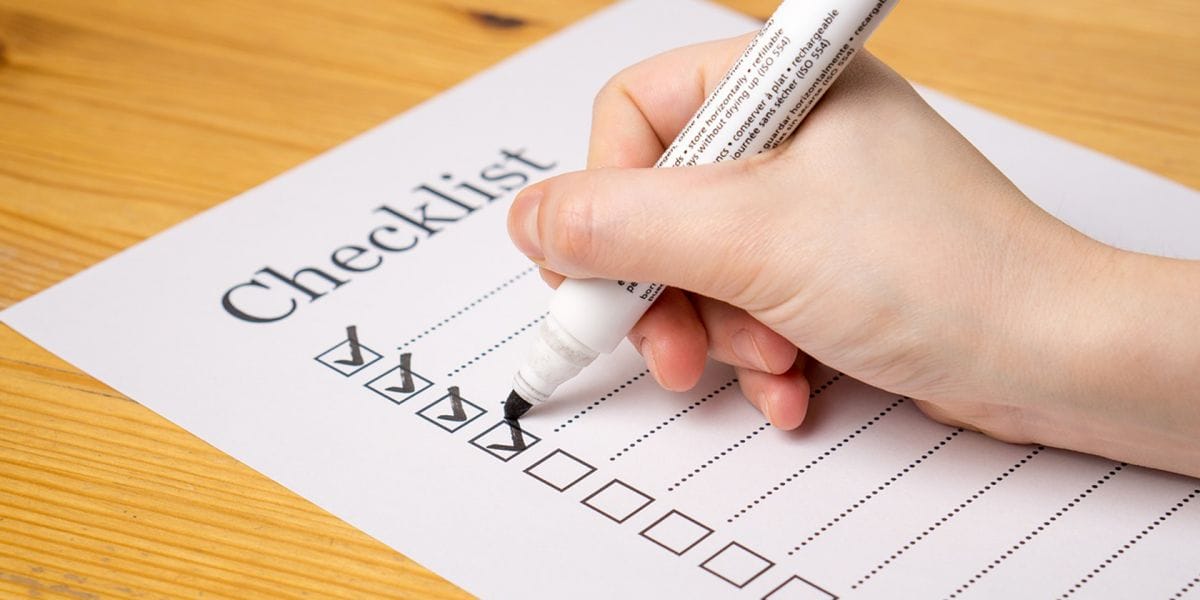As a member of the litigation field, you know that a great deposition performance can enhance your argument just as much as a poor deposition performance can damage it. You’ll have dozens of questions to cover, although not in any specific order. You should always be prepared to deviate from your plan depending on the behavior of your witness, especially if a new line of questioning opens up. The best way to make sure that you address everything is to use a checklist. When you invest time and effort into preparing for your deposition, you’re investing in your client. To help you ensure your deposition runs smoothly, we’ve compiled the following checklist as a guide:
Don’t Reserve Objections and Avoid Upfront Boilerplates
As simple as it sounds, we’d advise you not to put any stipulations in the record at the beginning of the deposition. When you stipulate that your opposition can reserve their objections, it may lead to unforeseen consequences later in the case. Ultimately, it’s to your advantage if the opposing attorney makes their objections during the deposition so that you can counter them in the moment, rather than awaiting trial.
Make Sure Your Witness Admits Competence
If your case is particularly emotional or high-stakes, witnesses will be even more likely to evade your questions. In general, you can expect a witness to dodge claims of their competence by saying they don’t remember past events or don’t have the framework to understand your questioning. It’s best to lead to the witness to admitting competence at an angle. If you can establish competence before you ask questions about key parts of the case, you’ll be better positioned to keep witnesses from evading. For example, if you are litigating a medical malpractice case, a licensed surgeon should be able to recall and explain the details that resulted in personal injury. Don’t let yourself be backed into a corner where they claim not to recall the situation.
Listen Through Awkward Silences
Too often attorneys underestimate the power of a good awkward silence! One of your best tools in a deposition is just being quiet. It’s human nature to grow uncomfortable in silence, and it may encourage your witness to ramble. Usually, you’ll be able to tell when the witness might have more to say, and in those cases, being silent is your best weapon. When a witness rambles, they may divulge clues that can lead you to the truth.
Watch for the “Witching Hour”
In photography, the witching hour is at sunset, when the golden glow causes flaws to melt away and makes people look their best. In depositions, the witching hour is the time of day when patience begins to run out, and prepared responses melt away. After a long day in a deposition, even the most prepared witness will begin to feel the strain of the time. This makes it a great time to lead into your most important questions. Boredom can be your greatest ally in seeking the truth!
Silence Counsel Who Won’t Stop Objecting
If you’re in a deposition with a particularly argumentative opposing counsel, you may find yourself dealing with too many objections that disrupt the flow of your questioning. “Speaking objections” can direct your witness toward answering a question in a way that benefits the opposition, which of course is a disadvantage for your case. If you notice that the witness is repeating the objection as part of their response, you are well within your rights to request a non-speaking objection.
At First Legal, we’re dedicated to helping you perfect your deposition! For more tips and tricks, and for assistance with your case, contact our Deposition Services department today!




